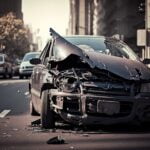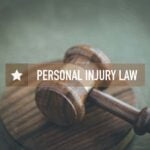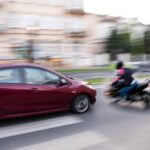Can Passengers be Liable for Causing a Car Accident?

Passengers in a vehicle can be a significant distraction to the driver and increase the risk of collisions. According to the National Highway Traffic Safety Administration (NHTSA), distractions contributed to over 3,100 fatalities in 2019, and passengers are one of the main sources of driver distraction.
Passenger Distractions Increase Risk
Distractions caused by passengers can be many, such as engaging in conversation, playing loud music, using their cell phones, eating, drinking, or even arguing. These actions can divert the driver’s attention from the road, impair their ability to react in a timely and appropriate manner, and increase the risk of wrecks.
Responsibility and Liability
While passengers are not typically held liable for a car accident, passengers’ negligent actions can make them liable for a wreck if their behavior contributes to the cause of the crash. For example, if a passenger intentionally distracts the driver or engages in reckless behavior, such as grabbing the steering wheel or pulling the emergency brake, they can be held responsible for any resulting wreck and injuries.
Encouraging or participating in illegal or unsafe behavior by passengers can get both the driver and passengers in trouble. For instance, if a passenger encourages the driver to speed, run red lights, or drive under the influence of drugs or alcohol, they can be held accountable for any resulting wrecks or injuries. It’s important to note that the driver also has a responsibility to ensure that their passengers do not distract them or engage in risky behavior. The driver should communicate their expectations clearly and enforce safety rules to ensure that everyone in the vehicle stays safe.
Driver and Passenger Safety
While passengers themselves may not be held responsible for most collisions, their actions can contribute to wrecks, and they can be held liable for their behavior if it directly causes the crash. As such, it’s essential for both drivers and passengers to prioritize safety, communicate effectively, and work together to ensure that everyone stays safe while on the road.









